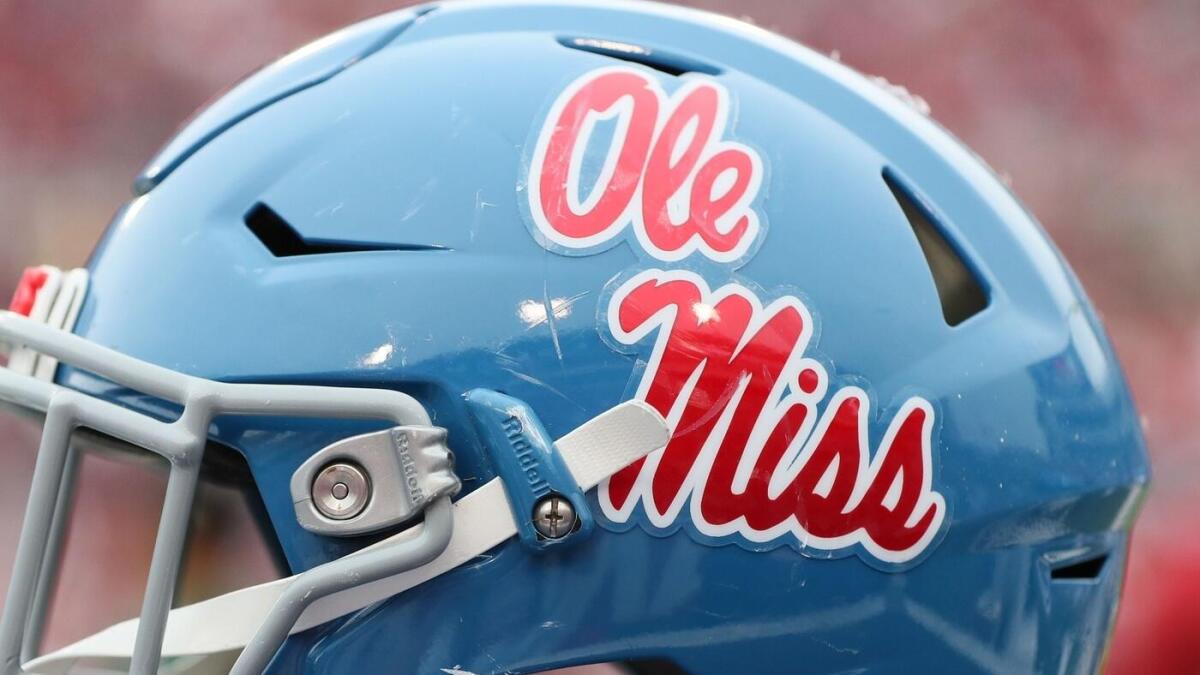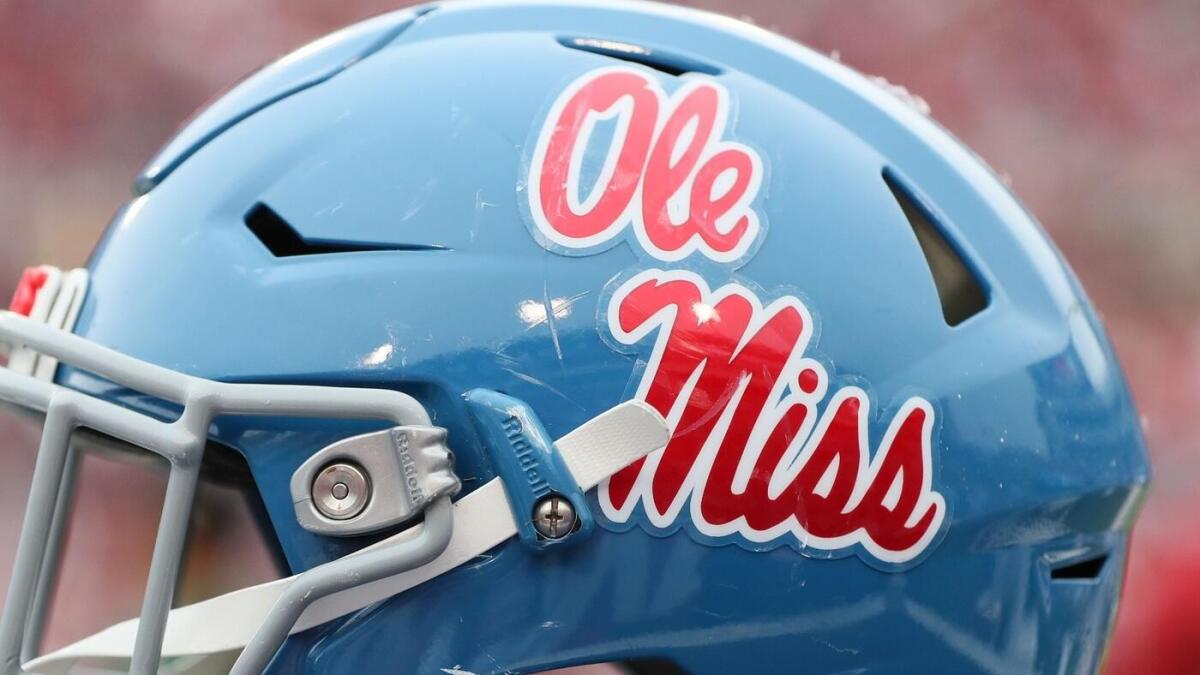The Intersection of Tragedy, Talent, and Triviality in Contemporary News Cycles
A Premature End: The Corey Adams Story
The sudden and tragic death of Corey Adams, a promising freshman football player at the University of Mississippi (Ole Miss), has sent shockwaves through the college sports community. Adams, a talented defensive back from Louisiana, was fatally shot in the Memphis area, a loss that extends far beyond the gridiron. His untimely passing serves as a stark reminder of the fragility of life and the devastating impact of gun violence on young individuals with promising futures.
The Ole Miss community has been deeply affected by this tragedy. The university’s official statement reflects the profound sense of grief and loss, emphasizing the void left by Adams’s untimely death. His potential on the football field was undeniable, but his true value lay in his character, his dreams, and the impact he had on those around him. The tragedy of Adams’s death transcends sports, highlighting the broader societal issue of gun violence and its disproportionate effect on young people.
The Allure and Distraction of Sports Triviality
While the death of Corey Adams is a somber and significant event, it exists within a media landscape that often prioritizes trivial matters over substantive issues. The sports news cycle is relentless, churning out updates, analyses, and predictions that can overshadow more pressing societal concerns. For example, ESPN’s coverage of the Men’s March Madness 2025 bracket meticulously dissects team strengths, weaknesses, and potential upsets, offering insights into championship contenders.
The Ole Miss Rebels, with their 22-11 record, are analyzed in detail, their tournament ceiling debated and scrutinized. While this level of analysis can be entertaining and engaging for sports fans, it also raises questions about the balance between enjoying sports and being aware of the world’s more serious issues. The constant barrage of sports trivia can create a sense of urgency and importance around sporting events, potentially diverting attention from critical societal problems like gun violence, mental health, and systemic inequalities.
From Gridiron Dreams to a Harsh Reality: A Reflection on Opportunity and Systemic Issues
Corey Adams’s story is a poignant example of the hopes and dreams that many young athletes harbor. For many, the opportunity to play college football represents a pathway to a better future, a chance to escape challenging circumstances and achieve personal and professional success. Adams’s tragic death underscores the systemic issues that disproportionately affect marginalized communities, where violence and limited opportunities can derail even the most promising futures.
The news cycle’s focus on sports often neglects to delve into the complex realities faced by many young athletes. The relentless pressure to perform, the risk of injury, and the potential for exploitation are often overlooked in favor of celebratory narratives of success. Adams’s death serves as a sobering reminder that these athletes are not simply performers on a field but individuals with lives, families, and vulnerabilities. His story calls for a deeper examination of the systemic issues that contribute to such tragedies and a commitment to creating a more equitable and supportive environment for young athletes.
The Backstreet Boy and the Shifting Sands of Pop Culture
In a seemingly unrelated sphere, the career of Nick Carter, a lead vocalist of the Backstreet Boys, offers another glimpse into the dynamics of contemporary celebrity culture. Carter’s enduring popularity, spanning decades, reflects the cyclical nature of fame and the power of nostalgia. While his personal life and professional endeavors may seem worlds apart from the tragic death of Corey Adams, both stories are interwoven into the fabric of the modern news landscape.
The fascination with pop culture icons like Nick Carter can be seen as a form of escapism, a way to temporarily disconnect from the harsh realities of the world. The entertainment industry provides a platform for vicarious enjoyment, allowing audiences to indulge in fantasy and spectacle. However, it is crucial to recognize that this escapism can sometimes come at the expense of a deeper engagement with social issues and human suffering. While enjoying the entertainment value of pop culture, it is essential to remain aware of the broader context and the real-world issues that demand our attention and action.
Antibiotics, Gender Roles, and Carceral Humanism: Unveiling the Unseen Threads
Beyond the realms of sports and entertainment, the news cycle also touches upon a diverse range of academic and social issues. Research papers on the effects of antibiotics, portrayals of gender roles, and analyses of “community-oriented policing” offer valuable insights into complex societal challenges. These often-overlooked narratives provide a counterpoint to the more sensationalized stories that dominate the headlines.
The study of antibiotic resistance, for example, highlights the urgent need for scientific innovation and public health awareness. The exploration of gender roles sheds light on the social constructs that shape our identities and expectations. The critique of “carceral humanism” exposes the potential for well-intentioned policies to perpetuate systemic inequalities. These diverse threads, while seemingly disparate, are all interconnected in the tapestry of human experience. By engaging with these narratives, we can gain a deeper understanding of the complexities of the world and the challenges we face.
The American Legion and the Echoes of History
The annual proceedings of the American Legion serve as a reminder of the sacrifices made by veterans and the importance of honoring their service. These historical documents offer a glimpse into the values and priorities of an organization dedicated to supporting veterans and promoting civic engagement. The American Legion’s commitment to patriotism, community service, and national security provides a valuable perspective on the ongoing challenges facing the nation.
The inclusion of the American Legion’s proceedings in the news cycle underscores the importance of preserving historical memory and learning from the past. By reflecting on the experiences of veterans, we can gain a deeper understanding of the complexities of war, the importance of diplomacy, and the need to support those who have served our country. The stories of veterans, like the stories of young athletes and pop culture icons, are integral to the broader narrative of our society.
A Call to Action: Balancing Awareness and Engagement
The diverse array of news stories—from the tragic death of Corey Adams to the pop culture relevance of Nick Carter, from the study of antibiotic resistance to the proceedings of the American Legion—presents a multifaceted view of the world. It is our responsibility, as informed citizens, to engage with these narratives in a critical and thoughtful manner. We must strive to balance our enjoyment of entertainment with a commitment to social justice, to honor the memory of those who have been lost with a determination to create a better future.
We need to support efforts to combat gun violence, promote educational opportunities for disadvantaged youth, and challenge systemic inequalities. We must also recognize the power of empathy and compassion, understanding that every individual has a story to tell and a contribution to make. By engaging with the news cycle critically and thoughtfully, we can gain a deeper appreciation for the complexities of the human experience and the challenges facing our world.
Finding Meaning in the Midst of Chaos
The news cycle can often feel overwhelming, a chaotic jumble of information and opinions. However, within this chaos lies the potential for meaning and understanding. By engaging with these narratives critically and thoughtfully, we can gain a deeper appreciation for the complexities of the human experience and the challenges facing our world. The death of Corey Adams, though a tragedy, can serve as a catalyst for positive change. By honoring his memory and working to create a more just and equitable society, we can ensure that his life was not in vain.
In the midst of the triviality and the tragedy, the talent and the turmoil, we must strive to find meaning and take action. The stories that dominate the news cycle are not just entertainment or information; they are reflections of our society, our values, and our aspirations. By engaging with them thoughtfully, we can contribute to a more informed, compassionate, and just world.












